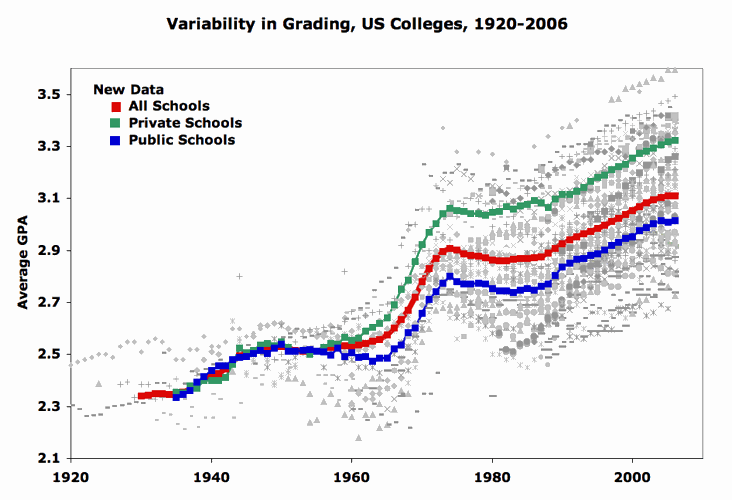
In the year 2004, Princeton began to use guidelines for grading distributions across its departments, and the academic departments are truly enforcing these guidelines to curb the school history of grade inflation.Īll of the above-listed schools have been setting up strict grading guidelines and enforcing them in all their departments to combat the rampant issue of grade inflation in the United State. This school also has a high reputation because of its grading policies but some departments in the school do not adhere to the guidelines. In the year 2003, Robert Witt, the university president responded to criticism that suggests his administration did nothing to kick against grade inflation. This school has also been mentioned as regards a recent case of grade inflation. Mostly to influence the grades of Black Americans and also the white students. There are reports to suggest that professors inflated the grades of their students as far back as the 60s and 70s. Grade inflation in Harvard university is related to lax academic standards. We are going to look at some of these schools below Many colleges and universities in the United States have been alleged to influence the grades of their students at a point in time.
#Igrade inflation university registration
Use for Free: Student Course Registration Form Template Examples of Grade Inflation in US Colleges Regardless, grade inflation has nothing but a negative impact on not only the students but also the faculty members that engage in the act. Although grade inflation is officially banned at several colleges and universities, it is more likely for it to occur in institutions that have not taken an official stance on the issue. It can also be because of a school official policy that the average GPA is high.Ī good example of grade inflation is when Stanford University made an official policy that none of their students should receive an F in an assessment. Sometimes, this act is done unintentionally, while in many cases, grade inflation is done intentionally. It is a common practice in institutions around the globe. Grade Inflation is a situation whereby students are not given grades based on their own merit, knowledge, or work, they are given grades beyond what they deserve or what they should get.

#Igrade inflation university how to
In this article, we are going to discuss the circumstances that surround grade inflation and how to combat it. Therefore, colleges and universities must provide fair and accurate tools for instructors to use in grading students. The people responsible are the teachers and the school professors. However, we may want to look at this, students are still not the ones inflating grades.

If one school, for example, practices grade inflation and the other does not, the students of the latter school might feel like they’re at a disadvantage. However, grade inflation does not add any value to them. Many students are obsessed with having higher grades, rightly so because they need these top grades to secure a better chance at the top universities. When students are not equipped academically, there is almost no way they can serve society. The persistence of grade inflation prevents students from learning. This is because the primary aim of College is to provide learning to students. Grade inflation continues to rise at top universities, and according to critics, it devalues degrees.

It also provides information about the academic progress of students, the school administration, parents and shows the student’s area of strength or areas that should be improved. It is no news that grade matters, as it facilitates admission to colleges and universities, and aids job and internship opportunities. The history goes as far back as 100 years ago. Grade inflation has been an issue for many years.


 0 kommentar(er)
0 kommentar(er)
